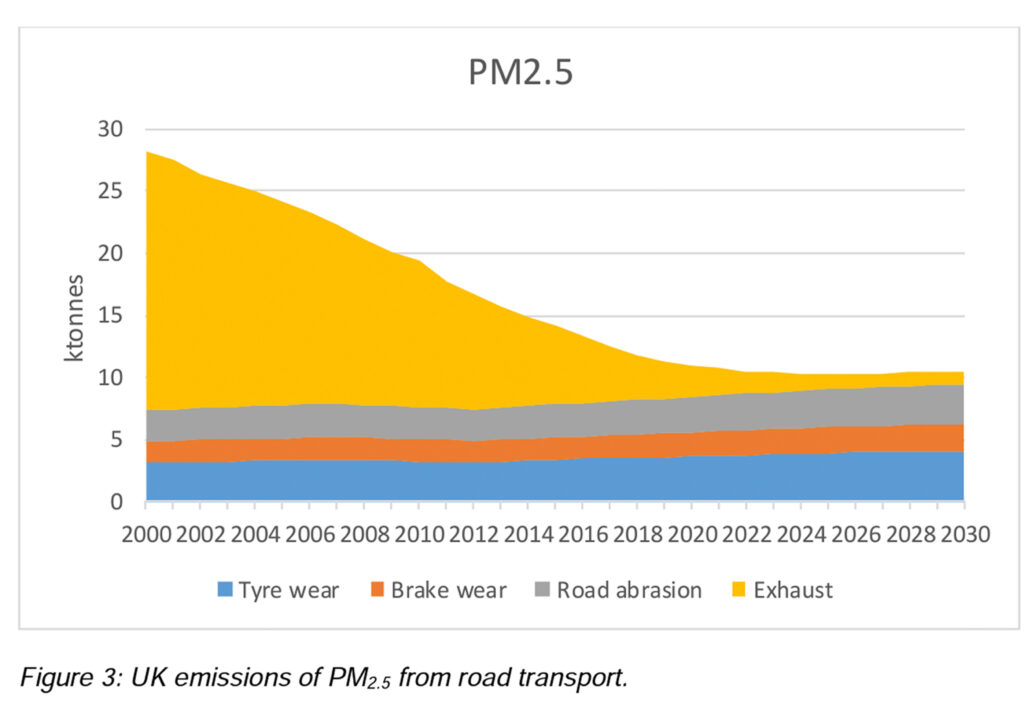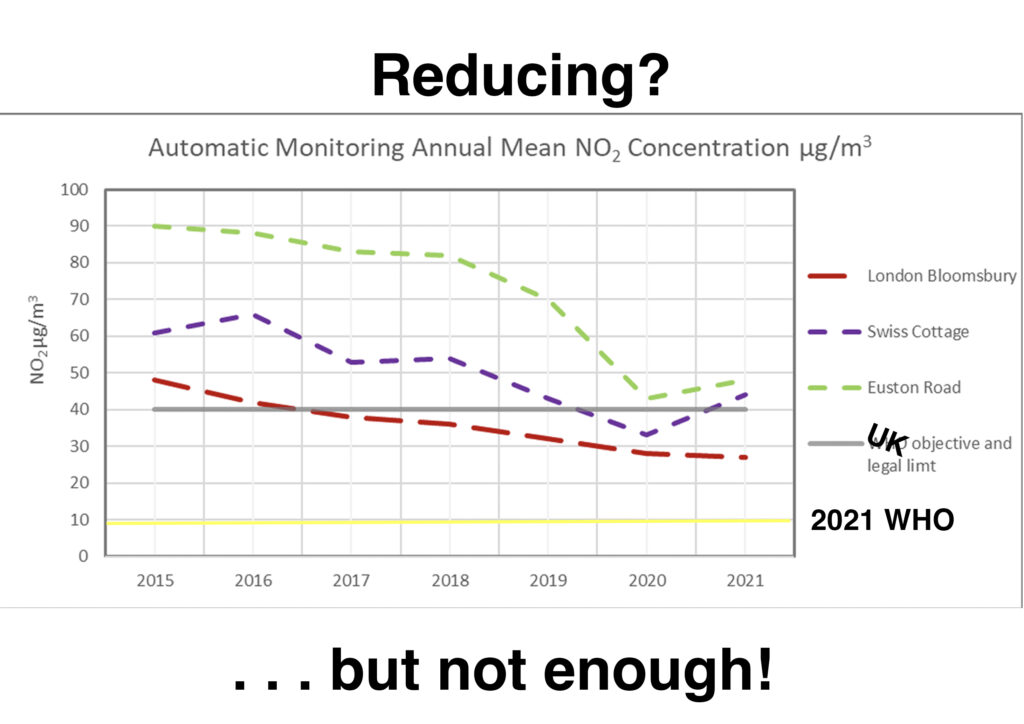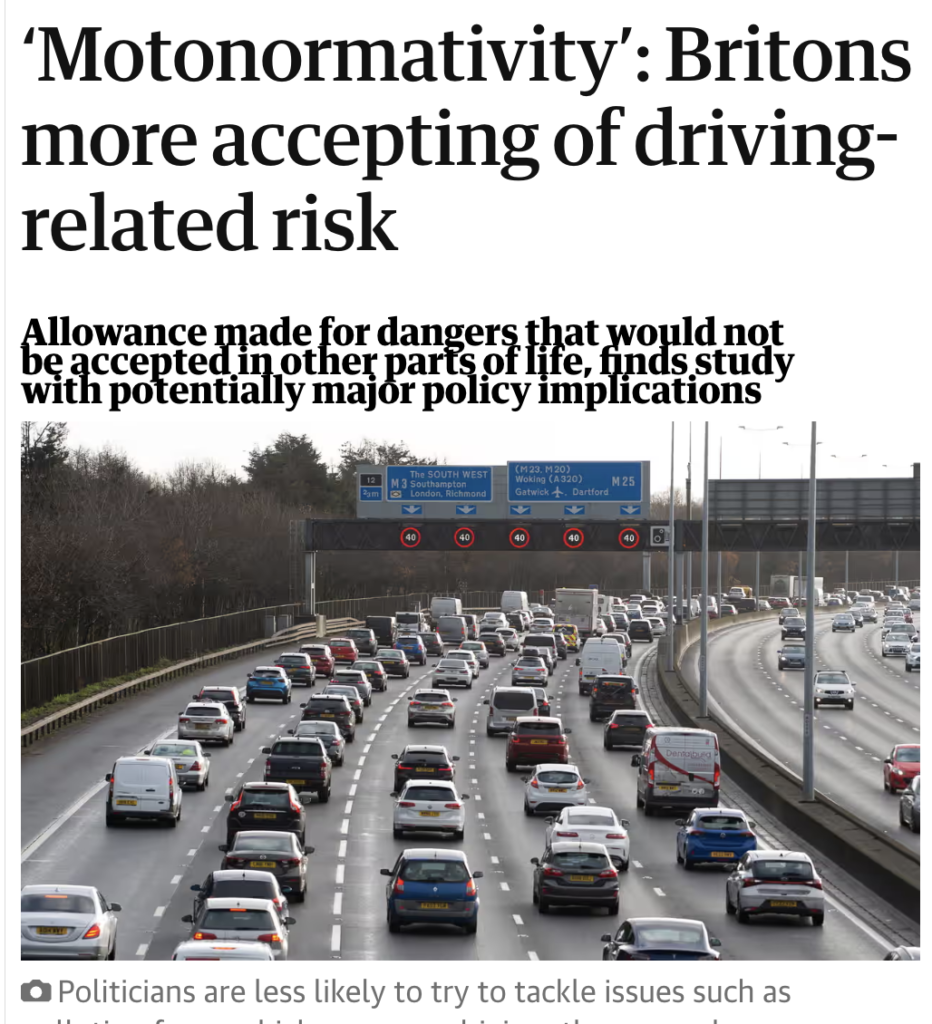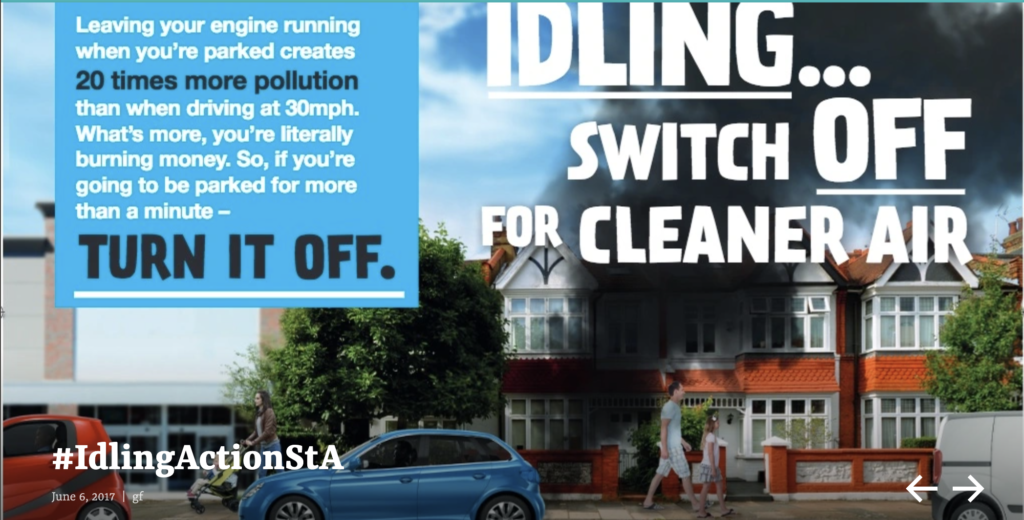There’s good news .. and bad news :
The good news:
Small particle (PM2.5) emissions from road transport have reduced very significantly.
This follows improved vehicle design – and road traffic controls like ULEZ in London.

Pedestrians experience less pollution than drivers and passengers inside vehicles. Its even better if you can walk along side roads.
Nitrous oxide / gaseous emissions have also reduced – at least in central London.
But even here, theyre still well above World Health Organisations levels.

Much more can be done: a targeted scheme to help drivers make cleaner transport choices would have £254m annual health and economic benefits: with every £1 invested in the scheme by central government having a £2.50 payback.
The bad news:
Electric vehicles dont produce NO2 – but they DO produce PM2.5 – from brakes, tyres and road wear – as shown above.
That is likely to increase – especially with EVs getting ever larger.
Super-sizing benefits car companies – but harms the pedestrians and cyclists the hulks hit; harms the communities where the rare minerals are mined; and harms the world which has to generate electricity for these – sometimes literally – elephant-size cars.
Drivers and vehicle passengers experience higher levels of pollution than pedestrians and cyclists.
Motonormativity means that many Britons have a shared ‘blind spot’ with different moral and ethical standards when we think about driving cars, compared to other areas of life.
In one study, 75% of people agreed with the statement: “People shouldn’t smoke in highly populated areas where other people have to breathe in the cigarette fumes.”
But only 17% thought “people shouldn’t drive in highly populated areas where other people have to breathe in the car fumes”.
The furore over the London ULEZ expansion highlighted this. A very small number of – vocal – vehicle owners were disadvantaged – while a huge number of – much quieter – outer London residents had their health at risk without ULEZ. Those driving the dirtiest cars are most at risk.

SO WHAT TO DO?
Please check out the section on schools: the ‘school run’ is a big contributor to weekday / termtime pollution.
If you’ve got a car: Definitely Dont Idle your engine.
Dads on the school run are more likely than mums to idle – please think of your children and SWITCH YOUR ENGINE OFF:


For e-commerce – if you ask for delivery to a local delivery hub or post office and can wait a day or two rather than insist on same day delivery, that means deliveries can be grouped which will reduce the number of vans driving round your area.
Many short journeys are still made by car:
– Could you swap any of your short journeys for more active travel? Walking or cycling down side roads is best
– Would using a local car club save you money as well as helping you and your families health?
– Recirculating air is the best way to minimise exposure to outdoor air pollutants – keeping windows open can make air quality even worse inside your car.